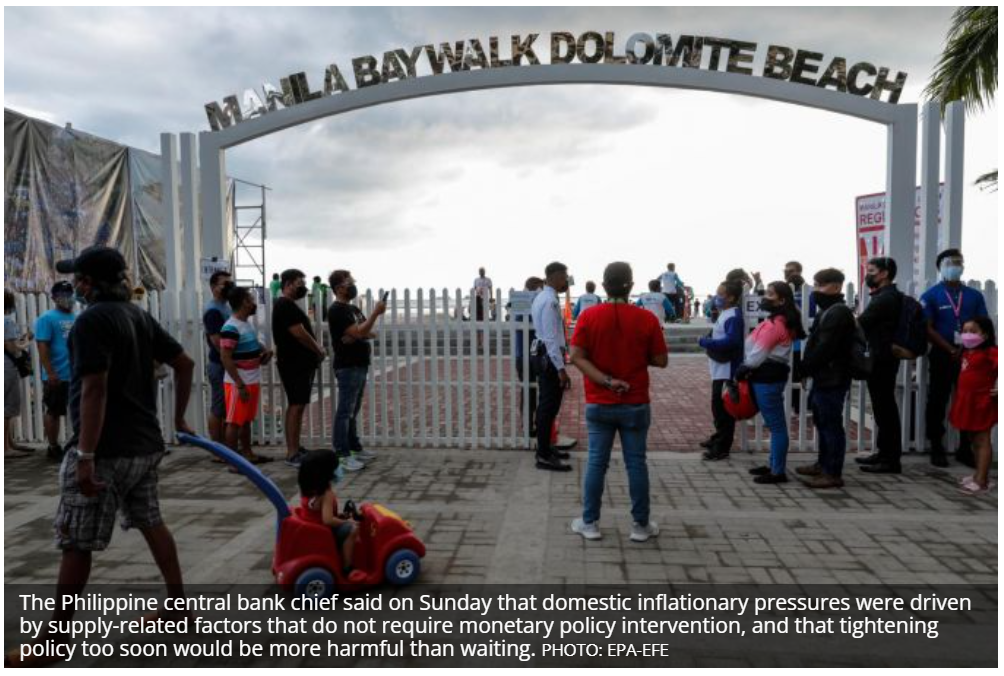Monetary tightening in Philippines unlikely for now
THE Philippine central bank chief said on Sunday that domestic inflationary pressures were driven by supply-related factors that do not require monetary policy intervention, and that tightening policy too soon would be more harmful than waiting.
Inflation slightly eased in September to 4.8 per cent from a near three-year peak in August. “Since the inflation pressures are coming from the supply side, there appears to be no justification for monetary intervention,” Bangko Sentral ng Pilipinas (BSP) Governor Benjamin Diokno said in a statement.
The BSP has kept its key interest rate at a record low for the past seven policy meetings, citing manageable inflation and uncertain growth outlook.
Diokno’s comments suggested accommodative policy settings would remain in place to support the economy’s recovery from the impact of the pandemic.
“To me, the harm that tightening monetary policy too soon exceeds the harm of moving too late, given that the Philippine economy is at its nascent state of economic recovery,” Diokno said.
In any case, he said the BSP would decide on the appropriate timing of its policy change based on the evidence at the time of such decision, and “won’t be influenced by opinion makers, market analysts or Twitters”.
The BSP expects average inflation this year to be about 4.5 per cent, outside the 2-4 per cent target band, but Diokno believes the uptick was “transitory” as the headline figure is projected to settle at an average of 3.3 per cent in 2022 and 3.2 per cent in 2023.
Diokno said the major upside risk in the remaining months of 2021 is the potential impact of weather disturbances on the prices of key food items. REUTERS


 Thailand
Thailand




